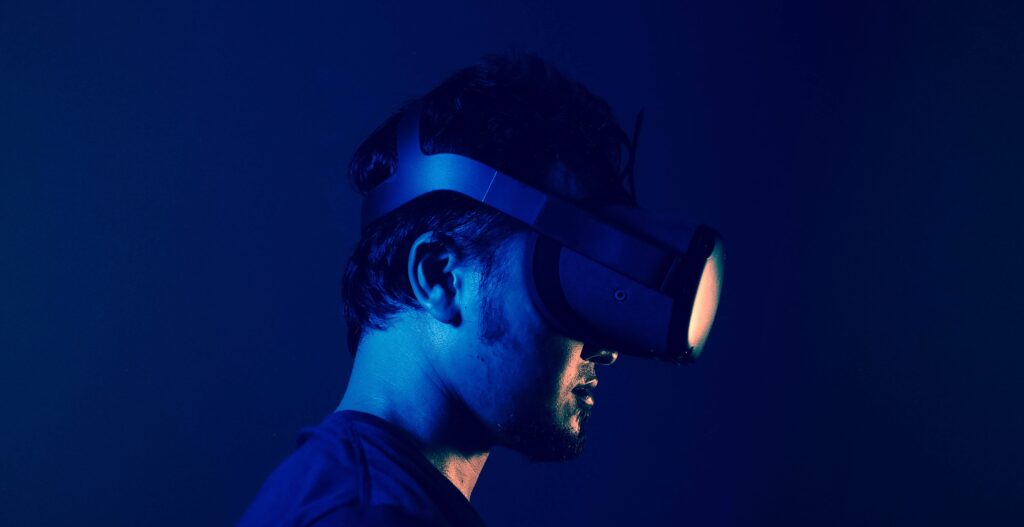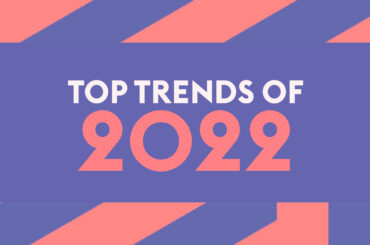“The Metaverse”. That’s the thing you’ve probably been hearing about the last couple months. You also probably heard it for the first time when Facebook announced that they were rebranding their parent company as Meta. But that surely brought up more questions than answers. Is it something that will replace the internet? Is it a place we’re supposed to start living in? Or does it have something to do with NFTs? Well, my friends, at least one thing about it is for sure — it is something quite tough to explain. But you know us, we’ll try our best anyway. So, let’s dive into the Metaverse and what it could mean for the music industry!
The origins of the Metaverse
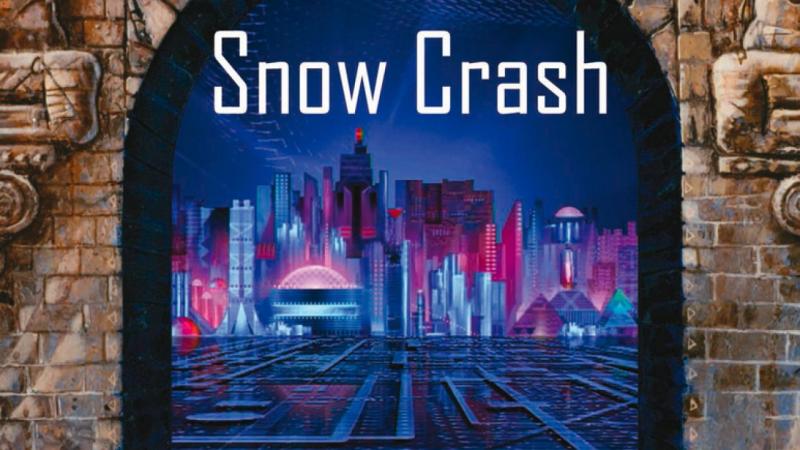
It seems like it all started as an old whisper you would hear here and there. A science-fiction dream that was too good to be true. Something abstract that didn’t really have a name. Until Neal Stephenson coined the term “metaverse” in his 90’s novel Snow Crash. In the piece, he described the metaverse as a 3D virtual world inhabited by avatars of real people. He was not the first one to talk about it, but his book became one of the most common reference points for metaverse enthusiasts, along with Ernest Cline’s 2011 novel Ready Player One. And even though one could argue that both those worlds are set in terrible futuristic dystopias, they sure as hell sound a lot better than waking up in the Matrix or Skynet. “But wait, aren’t all those digital worlds very different from each other?” you might be asking. Indeed they are.
So which one is the real metaverse?
That’s the tricky part. Since science fiction stories can depict a vivid picture of the metaverse without ever really explaining how it should work or why it should exist, there is no universal definition for it. To the outsider, it may look like a souped-up version of Virtual Reality (VR). Some even think that it could be to VR what your iPhone 13 Pro is to the Nokia 3310. But the one thing most people agree on is that it is a fancier, far more complex successor to the internet. Imagine an internet on steroids, mixed with VR and augmented reality (AR), and you might start to understand what the metaverse could be.
Because it is something so complex, allow us to just use the words of the tech company that arguably has the biggest stake in the metaverse, Facebook:
‘The ‘metaverse’ is a set of virtual spaces where you can create and explore with other people who aren’t in the same physical space as you.”

And we think we can trust good old Mark on this since they are hiring 10 000 people in the EU to specifically work on the development of the metaverse. But don’t go thinking this is something that only involves Facebook. Other companies are also getting on the hype train and are ready to invest heavily in it.
“So, it’s basically a game.”
Not quite. Right now, the tech industry figures talking about the metaverse are usually stoked about digital platforms that include some of these criteria:
- Feature sets that overlap with older web services or real-world activities
- Real-time 3D computer graphics and personalized avatars
- A variety of person-to-person social interactions that are less competitive and goal-oriented than stereotypical games
- Support for users creating their own virtual items and environments
- Links with outside economic systems so people can profit from virtual goods
- Designs that seem well-suited to virtual and augmented reality headsets, even if they usually support other hardware as well
But it isn’t limited to a set of attributes. It’s an aspirational term for a future digital world that feels more tangibly connected to our real lives and bodies.
“So, it’s not a game?”
It’s not “not a game”. And some big gaming companies like Epic – mostly known for publishing Fortnite – are starting to invest in the metaverse as well. Their Unreal Engine has already been used to create settings in The Mandalorian, so that goes to say how real their graphics can be and how they can use that technology for the metaverse. But yes, we know it’s a bit confusing. Hang on, we’re almost there.
To quote a recent Facebook statement, “The metaverse isn’t a single product one company can build alone. Just like the internet, the metaverse exists whether Facebook is there or not.” And just as the internet hosts an infinite number of websites, some similar, some very different, the metaverse is a broad term to describe a universe where an infinite number of digital realms could co-exist – every one of them having its own set of rules and community while also interconnected and allowing human interaction. To put it simply, imagine an infinite number of realities where your digital avatar can travel without your physical body having to leave your home, but that feels incredibly real.
Not that new
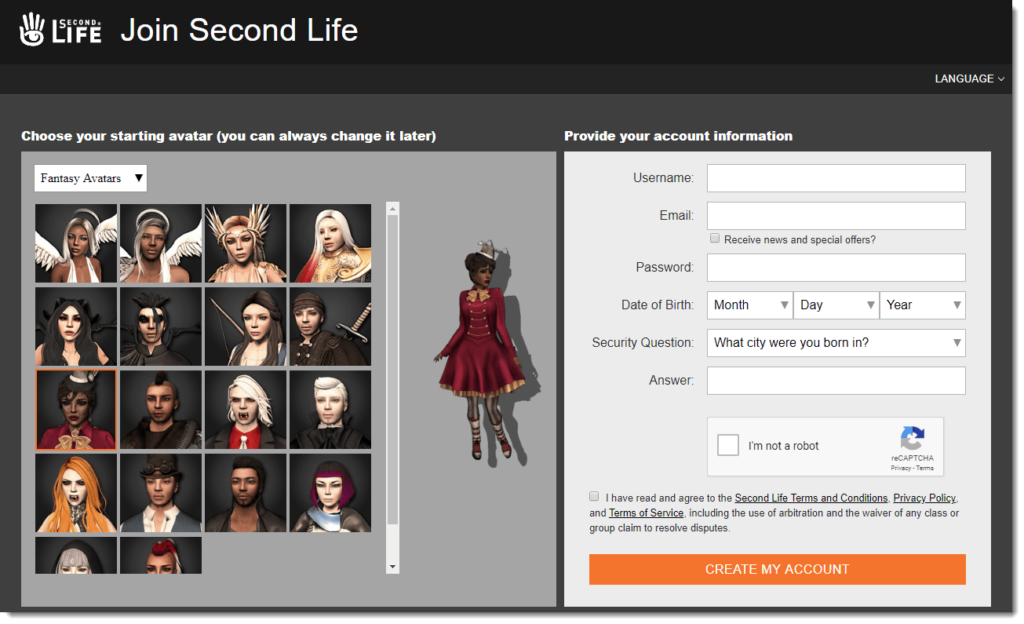
Yes, you could argue that we already had a whole metaverse hype cycle 20 years ago with Second Life and the likes. But what is different this time is that graphics technology and internet connectivity have significantly advanced. Many video games operate under a “live service” model where the developers constantly update a game to encourage players to return, creating a more convincing illusion of a living, breathing, ever-changing world.
Even non-metaverse online games make several changes to their gameplay years after their release. Which makes the experience more like a virtual space than a static game. From there, a leap to in-game concerts and fashion shows doesn’t seem that crazy does it? And it’s not like we haven’t seen some of those. Fortnite has hosted concerts for big artists including Marshmello, Ariana Grande, and Travis Scott already. Even Nike is getting ready for the transition and is set to release an exclusive collection of virtual clothes. The good news is, you won’t have to take care of your Jordans like a newborn baby anymore.
Why use the term “metaverse”?
Why not use the already existing term “internet” to roll those digital worlds? Because the internet already encompasses apps, websites, and all kinds of infrastructure services. Favoring the term “metaverse” creates a clean break with the internet we already know and use. Using it as a distinctive descriptor puts an emphasis on the enormity of a change that those digital worlds could bring and in turn, new opportunities to disrupt what we know. It also sounds way cooler than “internet” if we’re being honest.
Will it replace the internet then?

Mark Zuckerberg described it as an “embodied internet”. Whereas Tim Sweeney, CEO of Epic, sees it more as “a kind of online playground where users could join friends to play a multiplayer game like Epic’s ‘Fortnite’ one moment, and watch a movie via Netflix the next.” But one of the key points differentiating it from the current internet is the feeling of “presence” – a sense that you’re physically engaging with places and people instead of just watching them through a window. The future of Netflix and chill seems now limitless. But please, always use a good antivirus.
However, as of right now, a lot of elements seem like they will supplement the internet more than replace it. A good example would be mobile-internet and apps services that supplement or replace traditional websites but haven’t made a desktop option obsolete either.
Do we even have the technology for it?
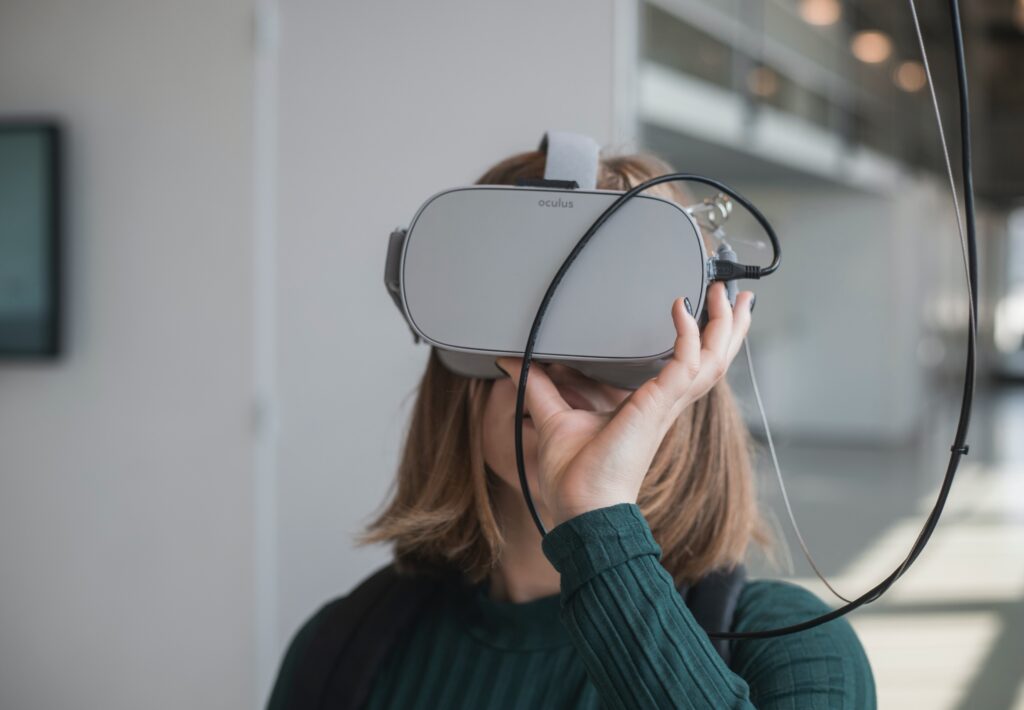
As technology goes, VR has come a long way in recent years. High-end headsets can really trick the human eye into seeing in 3D as the player moves around a virtual world. Facebook even is developing a more realistic VR experience with Haptic Gloves that mimic the feeling of handling real objects in the virtual world.

Also, the current explosion of interest for NFTs, a technology that may provide a reliable way to track digital ownership of some goods, could point to how a virtual economy could work. Or, in more practical terms, if you buy a virtual shirt in Metaverse Platform A, NFTs can create a permanent receipt and let you redeem the same shirt in Metaverse Platforms B to Z. But NFTs are complicated on their own and also have some issues. If you want to find out more about it, check out our article on NFTs.
To continue, a live, more advanced digital world will have the need for a better, more consistent, and more mobile connectivity. Which could be resolved with the rollout of 5G technology and could even evolve into something else completely further down the road.
For now, though, everything seems to be in the very early stages. The rise of the metaverse is not as close as you’d think. But as we mentioned before, companies are preparing for it.
Preparing for an evolution of content
Since the technology is slowly but surely getting there, some companies don’t want to wait for the wave to pass. Snapchat created an AR studio in order to help brands develop immersive content. This could change the advertising and marketing horizon drastically, giving them even more freedom to capture clients. Unity bought VFX studio Weta Digital, famous for their motion capture – which consists of reproducing in an ultra-realistic way the movements and facial expressions of a person to transcribe them in a digital way – in order to compete with Epic’s Unreal Engine. This could also be a big step for advertising agencies and the usage of their stars to sell products in the metaverse. And we’re sure we’ll see many more examples as time passes.
What will it mean for the Music industry

When we first think about the metaverse, we think about game engines and graphics rendering because we want it to look real. But what if you entered the metaverse and there was no sound? Can’t really imagine it, right? Plus there’s no denying that advances in technology have always impacted in one way or another the billion-dollar music and entertainment industries. Whether it’s recording artists, songwriters, producers, or fans, the domains of technology and music are evolving and converging at the speed of sound.
Sonic branding
Voice, and in turn sonic branding, is a frontier that needs to be explored. More and more companies are using music to give more depth to their brand image. It wouldn’t be crazy to think that within the metaverse, brands will also want to use it to stand out. Plus, going a bit further, brands would need to have a voice. Imaging using the same “voice commands” that you use in the physical world today. How dope would it be to speak to your voice assistant to navigate and interact with a virtual space or a virtual being? Brands could really take advantage of this. And in turn, it could create a whole new segment for the music industry.
Evolution of music
A few years ago, music-streaming platforms and apps drastically changed the way artists distribute and market their music. And the multiverse is sure to disrupt the music universe once again. Not only because it would allow artists to tap into new audiences but it also gives them a new avenue to monetize and profit from. Just like NFTs could do for the music industry too.
Big actors are already taking steps towards ensuring that they are first in line when this new revolution arrives. And, the first ones to see the potential of the metaverse were gaming companies.
Gaming and Music

Back in 2020, when the pandemic was surging and the need for entertainment and interaction was at the highest point, Fortnite hosted a concert with Travis Scott inside their game. This collaboration not only set the bar very high, but it opened the way for other platforms to think about how profitable mixing gaming and music together can be. It was not the first time had done that though. They had already hosted a Marshmello concert back in February 2020 that saw more than 10 million players come together. They then collaborated with Ariana Grande and it was described as being like “surfing through Ariana Grande’s personal universe”.
Roblox then followed and hosted Lil Nas X for a similar concert experience in November. This really showed how the possibilities for the music industry in the digital realm are unmatched. But not everyone was pleased with it. The National Music Publishers’ Association issued a lawsuit seeking $200m in damages. They accused the company of copyright infringement by allowing gamers to utilize unlicensed music as part of their experience. That ended with Roblox getting publishing deals with Sony Music Entertainment – who also acquired a minority stake in Epic Games, BMG, and Warner Music Group (WMG). They are now seen as one of the major players in the music metaverse, partnering with brands like Gucci or Stranger Things. And, WMG has even invested $520m for them to further develop their platform.
Concerts, fan interactions and immersive experiences
As mentioned before, the metaverse would give artists a new stage in which they could perform for millions of people at once. Also giving them absolute freedom on their dream-like stage. But it doesn’t stop there. Having a personal avatar is also a form of self-expression and a new avenue for fan engagement. Artists can create virtual “identities”. Something they can then use across various digital platforms. These avatars allow fans to have an online affiliation with the artist. The would help to further loyalty and engagement in the virtual world. Plus, fans would also be able to interact mid-performance with their favorite creators. In our opinion, this interactive gaming and gig experience has a “je-ne-sais-quoi” that could really step up the digital live concert world.
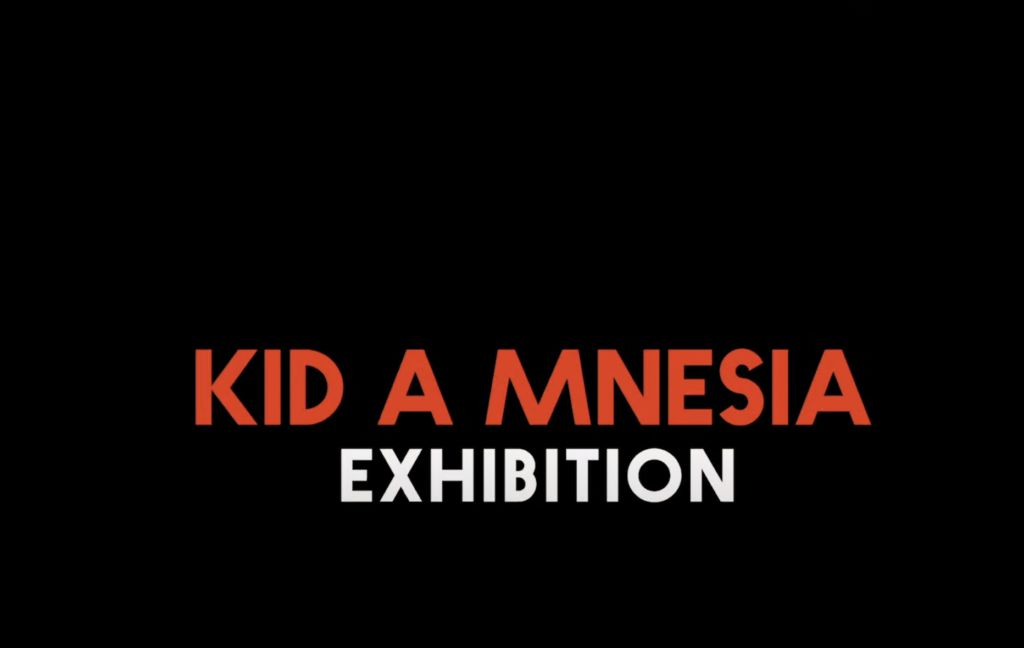
And in that regard, Radiohead is already ready to give it a try. Their music has always been about taking risks and being pioneers. But this time they are going one step further. They’ve teamed up with Epic Games for Kid A Mnesia: Exhibition, which according to the announcement, is an “upside-down digital/analog universe created from original artwork and recordings”. They created it in order to accompany the re-release of Radiohead’s iconic albums Kid A and Amnesiac. Along with a third, new album — Kid Amnesiae — of unreleased material from the two original albums’ recording sessions.
3D and 8D music
Artists and music publishers have already been playing around with 3D and 8D music before, sure. But the same way that sonic branding would be important, the “depth” and the perception users would have of the music around them would open up a new path for this kind of disrupting music. Something that should surely be kept in mind. It would also allow film composers to further develop the musical world they create for each project.
Takeaways
Well, if you made it all the way down here, congrats. You just unlocked 5G! Jokes aside, we hope you enjoyed the read. It was a lot of information but you made it through. Now you know what the metaverse is and how it could change a lot of things for the music industry. Just like any other big change, it can be scary, we agree. But we can’t help but get a little excited to see how all of this could evolve.
Of course, there are still some things that raise questions. How can an object bought in metaverse world A transfer to metaverse world B if those worlds are technically and aesthetically different? Is manually creating a different version of the same asset for every world the solution? But that would take a lot of time and resources and might not be worth the payoff in all cases. For that particular question, Nvidia has been working on their Omniverse Nucleus. A database engine that connects users and enables the interchange of 3D assets and scene descriptions. So we recommend you to check it out.
On another note, for the music industry, even if we saw how the metaverse could create a huge pool of opportunities of all kinds, it is still unclear how it would work. Let’s not kid ourselves, a digital live experience and a real-world live experience are two very different things. But who knows how far technology will go by then. And finally, rights holders will need to become more flexible to ensure music is licensed appropriately. Nevertheless, we are sure that this change will drive future growth in the industry.
That’s all folks! We hope you enjoyed this long and extensive article on the metaverse and what it could mean for the music industry. See you next time.

